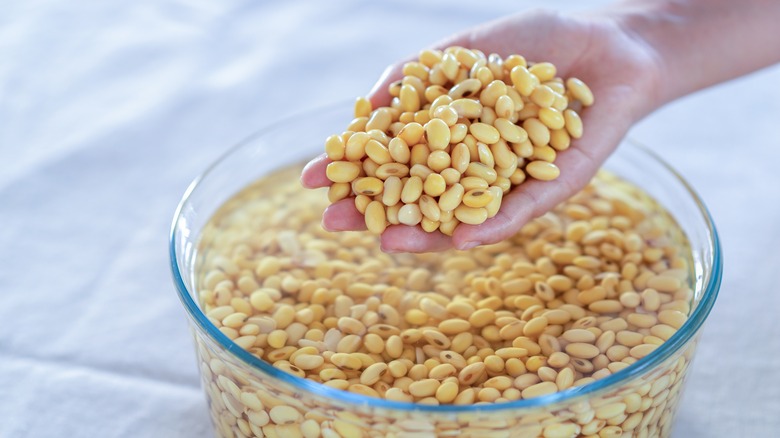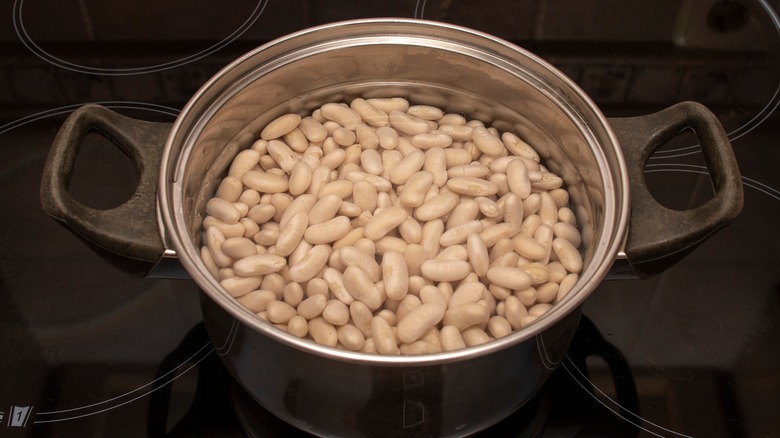Why The Size Of Your Bowl Matters When Soaking Beans
When you suddenly find yourself wanting a steaming bowl of herby ham and bean soup, the fastest way to make it happen is by cracking open a can of beans from your pantry and getting to cooking. However, if you have some time and wish to get the most out of your beans, give dried beans a shot — the flavor can be far richer and more complex than anything that's canned.
There's a catch, though. If you want to get the most out of dried beans, you'll have to soak them overnight. This step, while not strictly necessary, will make the beans easier to cook and more digestible. But here's a tip for the soaking step: pick a bowl that's large enough for the task. When the beans absorb all that water, they'll likely increase in size. Pick a vessel that's too small, and the beans may easily overflow and make a mess when they expand.
To be on the safe side, pick a bowl that's at least three times the volume of the beans. Alternatively, just use a pot large enough so that there's no way they'd spill out when they swell up. Pour in enough water for the beans to be submerged about two inches below the liquid's surface, and place the pot in the fridge — by morning, your properly soaked beans will be ready for cooking!
Is soaking the beans really necessary?
If you're short on time and want your spicy black bean soup ASAP, the good news is that you can put the unsoaked beans into a pot and start cooking right away. It'll take longer to cook them, but your soup will still turn out just fine. However, if you have the time, we recommend you give the beans a good soak before cooking.
For starters, soaking makes your beans fluffier and creamier, but the biggest benefit is that the process washes out hard-to-digest compounds in the legumes that may give you problems like gas. You see, beans have something called oligosaccharides, which is a complex carb that our bodies are not equipped to break down. Instead, your digestive system has to rely on gut bacteria to process it. A byproduct of this process is gas, and, well, that gas has to go somewhere (we'll let your imagination do the rest).
Soaking beans overnight washes away a lot of oligosaccharides, along with other stomach-unfriendly compounds like lectins and phytate, which are called anti-nutrients because they interfere with the body's ability to absorb nutrients. After soaking, the resulting beans will be much gentler on your digestive system as a result — this is the same reason why it pays to soak the nuts when making your own cashew milk. So, if you plan ahead for your bean feast, it'll be worth the extra step to get a more enjoyable dish that's easier on the stomach!

